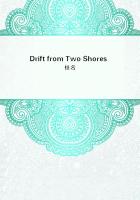Of the Funds or Sources of Revenue which may peculiarly belong to the Sovereign or Commonwealth THE funds or sources of revenue which may peculiarly belong to the sovereign or commonwealth must consist either in stock or in land.
The sovereign, like any other owner of stock, may derive a revenue from it, either by employing it himself, or by lending it.His revenue is in the one case profit, in the other interest.
The revenue of a Tartar or Arabian chief consists in profit.
It arises principally from the milk and increase of his own herds and flocks, of which he himself superintends the management, and is the principal shepherd or herdsman of his own horde or tribe.
It is, however, in this earliest and rudest state of civil government only that profit has ever made the principal part of the public revenue of a monarchial state.
Small republics have sometimes derived a considerable revenue from the profit of mercantile projects.The republic of Hamburg is said to do so from the profits of a public wine cellar and apothecary's shop.The state cannot be very great of which the sovereign has leisure to carry on the trade of a wine merchant or apothecary.The profit of a public bank has been a source of revenue to more considerable states.It has been so not only to Hamburg, but to Venice and Amsterdam.A revenue of this kind has even by some people been thought not below the attention of so great an empire as that of Great Britain.Reckoning the ordinary dividend of the Bank of England at five and a half per cent and its capital at ten millions seven hundred and eighty thousand pounds, the net annual profit, after paying the expense of management, must amount, it is said, to five hundred and ninety-two thousand nine hundred pounds.Government, it is pretended, could borrow this capital at three per cent interest, and by taking the management of the bank into its own hands, might make a clear profit of two hundred and sixty-nine thousand five hundred pounds a year.The orderly, vigilant, and parsimonious administration of such aristocracies as those of Venice and Amsterdam is extremely proper, it appears from experience, for the management of a mercantile project of this kind.But whether such a government as that of England- which, whatever may be its virtues, has never been famous for good economy; which, in time of peace, has generally conducted itself with the slothful and negligent profusion that is perhaps natural to monarchies; and in time of war has constantly acted with all the thoughtless extravagance that democracies are apt to fall into- could be safely trusted with the management of such a project, must at least be good deal more doubtful.
The post office is properly a mercantile project.The government advances the expense of establishing the different offices, and of buying or hiring the necessary horses or carriages, and is repaid with a large profit by the duties upon what is carried.It is perhaps the only mercantile project which has been successfully managed by, I believe, every sort of government.The capital to be advanced is not very considerable.
There is no mystery in the business.The returns are not only certain, but immediate.
Princes, however, have frequently engaged in many other mercantile projects, and have been willing, like private persons, to mend their fortunes by becoming adventurers in the common branches of trade.They have scarce ever succeeded.The profusion with which the affairs of princes are always managed renders it almost impossible that they should.The agents of a prince regard the wealth of their master as inexhaustible; are careless at what price they buy; are careless at what price they sell; are careless at what expense they transport his goods from one place to another.Those agents frequently live with the profusion of princes, and sometimes too, in spite of that profusion, and by a proper method of ****** up their accounts, acquire the fortunes of princes.It was thus, as we are told by Machiavel, that the agents of Lorenzo of Medicis, not a prince of mean abilities, carried on his trade.The republic of Florence was several times obliged to pay the debt into which their extravagance had involved him.He found it convenient, accordingly, to give up the business of merchant, the business to which his family had originally owed their fortune, and in the latter part of his life to employ both what remained of that fortune, and the revenue of the state of which he had the disposal, in projects and expenses more suitable to his station.
No two characters seem more inconsistent than those of trader and sovereign.If the trading spirit of the English East India Company renders them very bad sovereigns, the spirit of sovereignty seems to have rendered them equally bad traders.
While they were traders only they managed their trade successfully, and were able to pay from their profits a moderate dividend to the proprietors of their stock.Since they became sovereigns, with a revenue which, it is said, was originally more than three millions sterling, they have been obliged to beg extraordinary assistance of government in order to avoid immediate bankruptcy.In their former situation, their servants in India considered themselves as the clerks of merchants: in their present situation, those servants consider themselves as the ministers of sovereigns.
A state may sometimes derive some part of its public revenue from the interest of money, as well as from the profits of stock.
If it has amassed a treasure, it may lend a part of that treasure either to foreign states, or to its own subjects.















